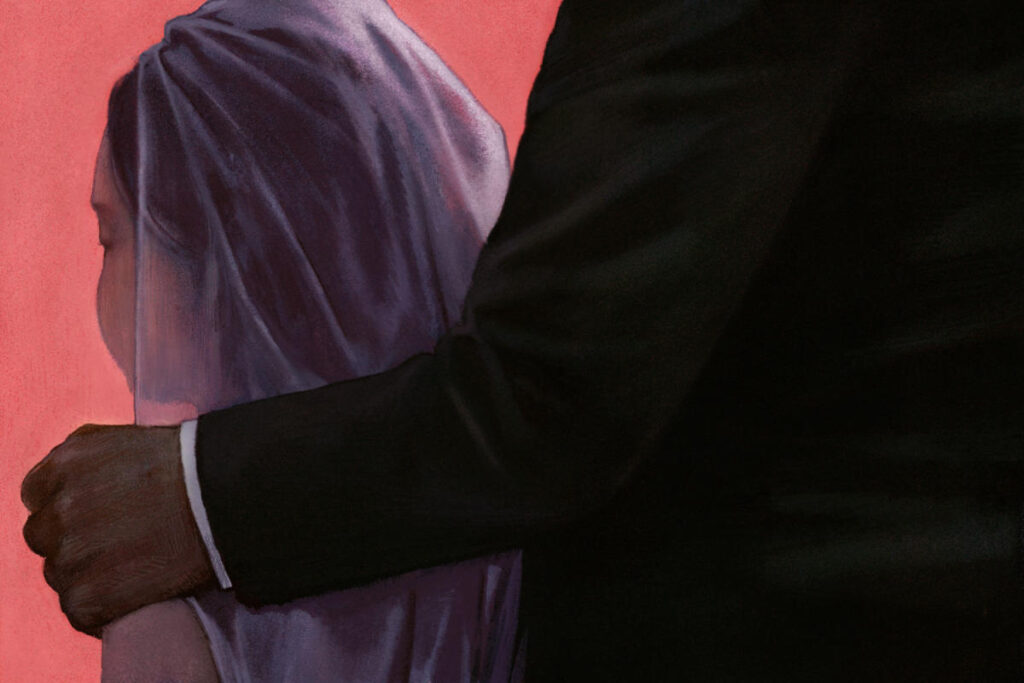In Baghdad, a harrowing account has emerged from a young woman named Batta, who was sold into marriage at just 11 years old to a man 36 years her senior. The harsh realities of her life since then include experiences of rape, physical abuse, a forced divorce, and subsequent ostracization by her family. After spending time in despair hidden away in shame, Batta has found herself in Erbil, where she works as a sex worker. Her early marriage, she describes, was not a union but a transaction, forcing her into an adult life filled with trauma, underscoring the grim realities of child marriage in Iraq. Batta now fears for the futures of other young girls if proposed amendments to Iraq’s Personal Status Law are enacted, which would allow marriages for girls as young as nine and empower religious authorities in familial matters.
At the root of her suffering lies a complex narrative involving her parents. Batta recalls overhearing a dispute between her mother, Hana’a, and father, Hussein, in which her mother expressed concern for her young daughter, acknowledging Batta’s extreme youth and lack of preparation for such a marriage. Yet, her father dismissed her fears, prioritizing perceived respectability and financial incentive over his daughter’s well-being. Batta’s subsequent marriage was devoid of her consent and filled with pain from the very first night, an experience she wishes to forget but knows she cannot. Her husband’s initial kindness quickly deteriorated into violence and control, marking a common trajectory for many young brides in similar circumstances.
Batta highlights the harsh implications of child marriage, illustrating her loss of freedom and isolation following her divorce. Returning to her family, she became a servant rather than a loved daughter, shut away from the world due to the family’s shame over her experiences. Upon turning 16, she felt compelled to escape her stifling life in Baghdad, only to find herself ensnared in a brothel under the guise of helping her. In this new reality, she and other girls were exploited, forced to engage in degrading work while their earnings were siphoned off for rent and food, raising pressing questions about the systemic oppression of women, particularly young girls, in Iraq.
UNICEF and various humanitarian organizations highlight that Batta’s story is far from unique; approximately 28% of Iraqi girls marry before the legal age of 18. The dire consequences of these marriages are well-documented, ranging from domestic violence to health risks due to early pregnancies. There’s a growing concern regarding proposed amendments to Iraq’s Personal Status Law, driven by predominantly Shia Muslim lawmakers. These changes threaten to reverse progress made in women’s rights, enabling parents to marry off young daughters and further exploit impoverished families.
Historically, Iraq’s Personal Status Law has been a progressive framework, safeguarding the rights of women and children since its adoption in 1959. Law 188 initially provided protections against child marriage, establishing a at least 15 years of age for marriage with judicial consent. But with proposed changes giving clerics greater authority and limiting the role of families and courts, critics argue that the law could lead to increased rates of child marriage, undermining decades of legislative progress. Lawmakers supporting the amendments claim they are aligned with religious values and could offer a foundation for stable families; however, this reasoning has faced significant backlash from various groups who view these proposals as retrograde.
The situation ignited protests across Iraq, with many activists, including some lawmakers, expressing outrage over the potential deterioration of children’s rights. Critics assert that these amendments reflect a failure of political leadership, amplifying disillusionment among citizens who once held hope for democratic improvements. The legislative debates surrounding the Personal Status Law have become a battleground for broader societal values, conflict over power dynamics, and the protection of fundamental human rights.
Batta’s poignant admonition serves as a rallying cry for those opposing the amendments: changing the law would endanger countless young girls, subjecting them to fates akin to her own. Her experiences reveal a deeper societal issue—where often it is about financial necessity rather than the welfare of children and their futures. Today, as the debate continues, there lies an urgent need for activists, lawmakers, and community leaders in Iraq to protect and uphold the rights of vulnerable girls as they navigate a world fraught with challenges and systemic inequalities.

